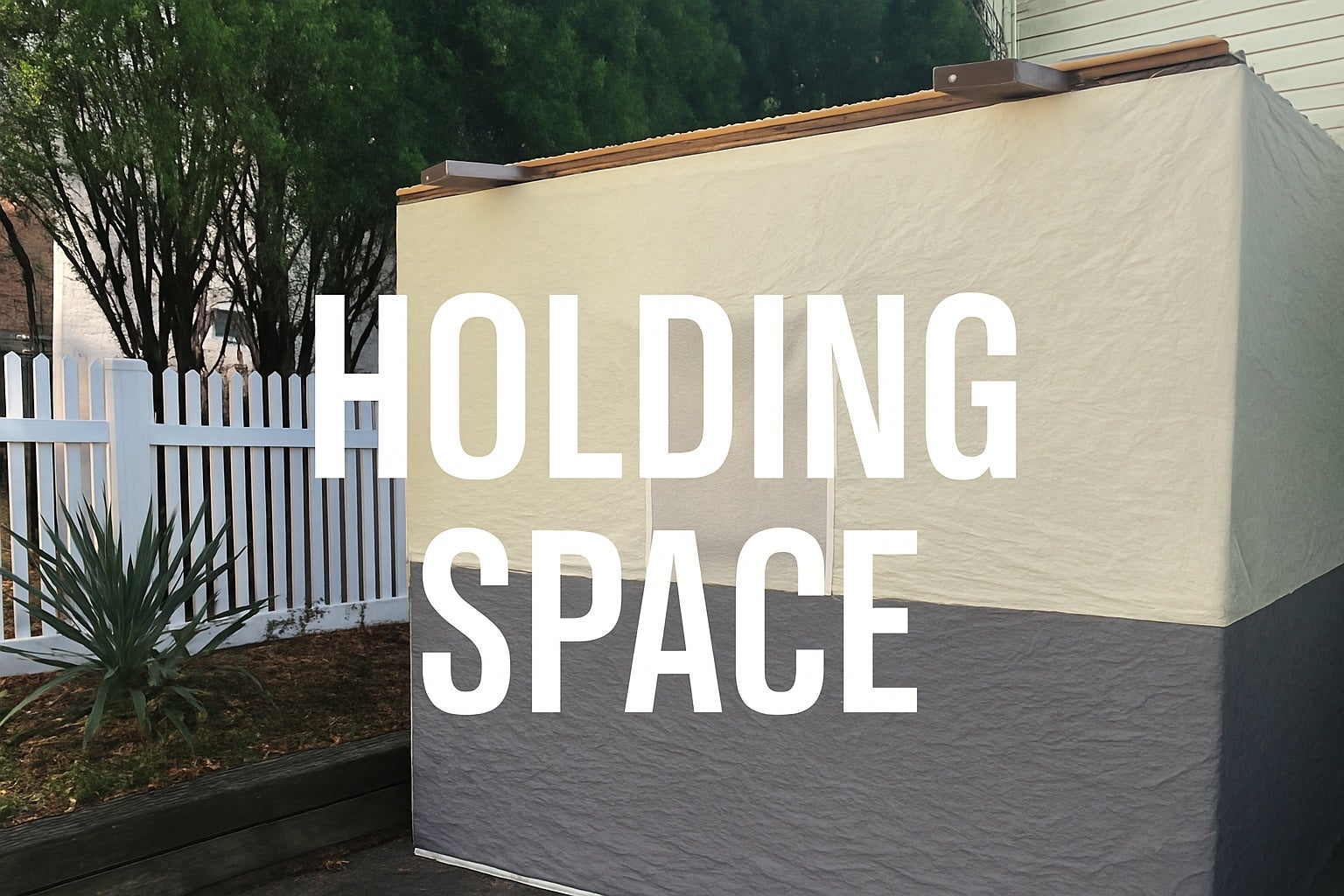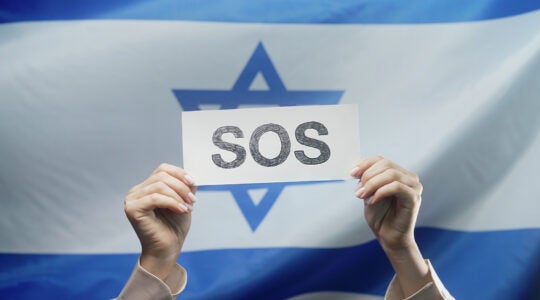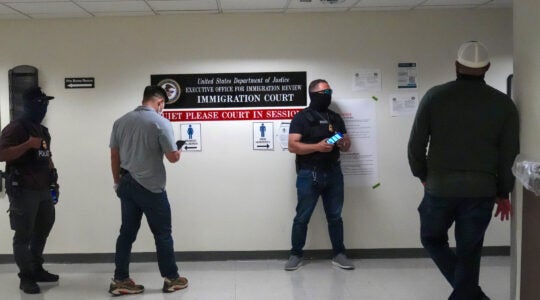As Sukkot and the anniversary of the Oct. 7 attacks approached, I received separate emails from two different Jewish organizations with what to me was an unfamiliar use of the word “holding.”
The first, from the progressive group New Jewish Narrative, had the subject line “Holding complexity on October 7th.”
The second, from the women’s educational group Svivah, read, “Holding Their Light, Holding Our Loss.”
In each case, I could imagine a synonym that might work just as well, like “offering” or “providing” nuance, or “remembering” their light and “mourning” our loss.
But I trusted both organizations in their use of language, and I’m glad I did. It turns out the term “holding” has become widespread among many Jewish writers and activists, usually in therapeutic or comforting contexts.
I also found out that I’m late to the “holding” party, and that the term sort of blew up last year when two Hollywood stars used the expression in a video that went viral.
When Jewish writers use “holding” this way, it means something like “to leave room for,” the way a good friend or therapist indulges your feelings without trying to contradict or explain them away.
“How do we talk about October 7th? How do we share everyone’s grief and also hold how isolating and scary it has been?” Svivah wrote, in an email promoting an event marking the two-year anniversary of the Hamas attacks. “ “How do we hold the enormity of the loss — knowing that each and every life lost was a whole world?”
“Holding” in this sense is usually followed by “space,” as in this recent message from Hillel International ahead of Sukkot:
This year, as the holiday overlaps with the two-year commemoration of the October 7 attacks, may we enter the sukkah holding space for both joy and grief, honoring the victims and their families while embracing traditions that root us in resilience.
The term “holding space” as it is understood today was popularized by Canadian writer and facilitator Heather Plett in a 2015 blog post. Plett defined it to Psychology Today as “being willing to walk alongside another person in whatever journey they’re on, without judging them, making them feel inadequate, trying to fix them, or trying to impact the outcome.”
Since then, “holding space” has become a common term in therapeutic, coaching and spiritual communities, emphasizing the importance of being present and supportive.
It’s also the definition that launched a thousand memes. Late last year, “Wicked” stars Cynthia Erivo and Ariana Grande were being interviewed by journalist Tracey E. Gilchrist, who told Erivo that “people are taking the lyrics of ‘Defying Gravity’ and really holding space with that, and feeling power in that.” Fans and haters couldn’t get enough of the two stars’ deeply emotional response.
I apparently missed the “holding space” hullabaloo that followed, but the phrase apparently triggered people inclined to dismiss therapy-speak as jargony, cloying or imprecise.
Despite the mockery, “holding space” has become useful, especially at a time of deep political and cultural polarization, and particularly in a Jewish world still reeling from the attacks, the war and a rise in antisemitism.
Rabbis and other Jewish influentials using the term suggest that people are hungry for settings where they can express their feelings without rancor. That hunger has only increased with the trauma that followed Oct. 7, when many Jews felt isolated and unable to express their grief in public, and wary of airing their political views even in Jewish settings.
Last year, one year after the attacks, Sarah Sokolic, the co-founder and executive director of Lab/Shul, told JTA how her New York-based congregation planned to negotiate its political divides on the one-year anniversary of Oct. 7.
“We have community members that span the spectrum of Zionist, anti-Zionist, and every nuance in between, and holding nuance and holding space for both … is something that we’ve really leaned into,” Sokolic said.
Similarly, the Network of Jewish Human Service Agencies is holding a series of monthly online seminars for Jewish professionals called “Holding Space.” In announcing the series over the summer, NJHSA said it was in response to the war in the Middle East, but also to the upheavals surrounding political violence, anti-Israel protests around the country and immigration raids that “are compounding widespread anxiety and fear.”
“[A]mid this turmoil, the demands of leadership, caregiving, and showing up for others remain relentless,” it explained, “That’s why The Network is reaffirming its commitment to holding space for you — to pause, connect, reflect, and support one another.”
In February, after the bodies of hostages Shiri, Ariel and Kfir Bibas were returned to Israel for burial, Rabbi Chaya Bender of Bnai Israel Congregation in Wilmington, Delaware offered her own take on “holding space” as the congregation dealt with its emotions.
“This past Saturday, I spoke about holding space for horror,” she said in a sermon. “When emotions are so large, and are so raw, the only thing that one can do is to pause and to allow the feelings to flow. In the aftershock of horror, of tremendous loss, it is not the time to act. After the initial shock waves have subsided and grief begins to become true mourning, that is one when can act.”
The second anniversary of the attacks coincides with the first day of Sukkot, a holiday in which Jews move out of their comfortable homes and eat and sleep in temporary booths set up in their backyards, balconies and communal spaces. For some, it is a holiday about hospitality — having friends and relatives over for a meal, and even inviting biblical forebears, known as “ushpizin,” to take a symbolic seat at the table.
On Sukkot, “holding space” is both literal and metaphorical.
On the first day of the holiday, the Hostages Families and Survivors Forum planned to gather in front of the White House in a “Sukkah of Hope.” With talk of a peace agreement in the air, the group announced, “We’ll honor those we lost, hold space for the 48 hostages still in Gaza, and continue the fight to bring them home.”
JTA has documented Jewish history in real-time for over a century. Keep our journalism strong by joining us in supporting independent, award-winning reporting.






